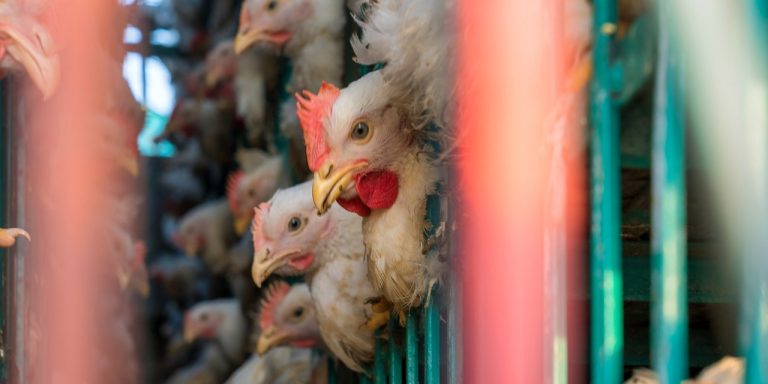
What’s different about the current outbreak, according to Thainá Landim de Barros, PhD, a poultry health extension specialist at The Ohio State University’s College of Food, Agricultural, and Environmental Sciences, is that warmer months haven’t slowed the spread, like they did in the summer of 2015. Unfortunately, she tells SELF, the current outbreak hasn’t followed the trajectory of the 2014–2015 outbreak—rather than getting back to normal, cases continued to spread over the summer last year.
Should we be worried about bird flu eventually spreading to humans?
In rare cases, people in contact with avian flu–infected birds do get the virus. A few months after the H5N1 virus was identified in the US last April, a person with “direct exposure to poultry” who was exposed to infected birds tested positive for the virus, per the CDC. But since December 2021, fewer than 10 people globally have contracted the virus, the agency says. Historically, people with the virus have experienced a range of reactions: Some have had no symptoms, and others had mild illnesses (such as an eye infection or upper respiratory symptoms). In a few cases, the virus has caused severe disease, like pneumonia and death. We don’t fully know the circumstances surrounding the people who have died during the current outbreak (and whether they had any underlying health conditions that could have made them more vulnerable).
People who work with poultry can contract the virus through prolonged contact with an infected bird; if they inhale a bird’s mucus, saliva, or poop; or if any of those things get into their eyes, nose, or mouth. Thankfully, bird flu isn’t transmitted through cooked food, so you don’t need to worry about contracting the illness through groceries you pick up at the store. “The food safety risk doesn’t exist,” Dr. Landim de Barros says.
While bird-to-human cases are rare, researchers are closely monitoring the outbreak’s potential threat to humans based on transmission from mammals. If researchers were to find proof of animal-to-human or human-to-human transmission, the response could look similar to that which occurred when COVID-19 started spreading, Dr. Russo says. This may include policies that slow the spread of illness and a wide-scale vaccination campaign.
What’s being done to stop the spread—and do we know when the outbreak will end?
The White House recently announced it’s considering plans to vaccinate millions of chickens against bird flu. Per The New York Times, agricultural officials have started testing vaccines and discussing potential immunization plans with poultry industry leaders.
In the meantime, global health authorities are working together to keep a close eye on the virus. “There are a lot of international organizations that keep assessing the risk for public health, and right now the risk is still considered low,” Dr. Landim de Barros explains. “All countries can keep their surveillance programs [up-to-date]” and promptly notify other countries when an outbreak occurs, she says.
In the US, the USDA monitors bird flu by testing samples from wild bird populations. Commercial farmers also have to keep a close eye on their flocks and report cases of avian flu to a local veterinarian’s office or agricultural agent, or the USDA itself. (Farmers and other people who work with wildlife can tell if a bird is sick by swabbing the animal’s throat or sending a fecal sample for analysis.)
The CDC recommends that people who work with poultry wear protective equipment, like masks, gloves, and safety goggles.
Unfortunately, there’s simply no way to tell when the current outbreak among poultry will end. But it’s essential, Dr. Landim de Barros says, to keep the news of the current outbreak in perspective. Given what we’ve all been through throughout the COVID-19 pandemic, it may be easy to spiral when you see scary headlines—but there’s truly no need to at the moment. “It’s important to tell people not to panic,” she explains. “We have so many news [stories] every day, but it’s important [to know] our parties are doing everything they can to pay attention to what is happening.”
Related: